Dovzhenko, Oleksander
Dovzhenko, Oleksander [Dovženko], b 10 September 1894 in the village of Sosnytsia, Chernihiv gubernia, d 25 November 1956 in Moscow. (Photo: Oleksander Dovzhenko.) Film director. After graduating from the Hlukhiv teachers' seminary in 1914, Dovzhenko worked as a teacher in Zhytomyr. During the struggle for independence (1917–20) he participated in the revolutionary events in Kyiv and in 1919–20 belonged to the Borotbists. In 1921–3 he worked in Warsaw and Berlin as a member of Ukrainian diplomatic missions. In 1923–6 he drew caricatures for the newspaper Visti VUTsVK in Kharkiv and played an active role in the literary and artistic life of the city. He had begun studying painting in Berlin and continued to paint in Kharkiv.
In 1926 Dovzhenko began to work as a film director at the Odesa Artistic Film Studio. His first films were Vasia—reformator (Vasia, the Reformer), Iahidka kokhannia (The Berry of Love, 1926), and Sumka dypkur'iera (The Diplomatic Courier's Bag, 1927). Drawing on Ukrainian history, in 1927 he created the film Zvenyhora, which is considered to mark the beginning of Ukrainian national cinematography. Dovzhenko's expressionist film Arsenal (1929) is devoted to the revolutionary events in Kyiv in 1918. His last silent movie, Zemlia (The Earth, 1930), dealing with the collectivization drive in Ukraine, is a masterpiece. Dovzhenko was severely criticized as a Ukrainian nationalist for this film and for his next film, Ivan (1932), about the building of the Dnipro Hydroelectric Station. He was forced to move to Moscow, where he lived as if in exile until his death. In Moscow he made Aerograd (1935) about the Far East and spent over four years on the film Shchors (1939), which depicts the struggle of the Bolshevik army against the Ukrainian forces defending Ukraine's statehood during the Ukrainian-Soviet War, 1917–21. During the Second World War Dovzhenko made three chronicle films: Vyzvolennia (The Liberation, 1940), on the annexation of Galicia to the Ukrainian SSR; Bytva za nashu Radians’ku Ukraïnu (The Battle for Our Soviet Ukraine, 1943); and Peremoha na Pravoberezhnii Ukraïni (The Victory in Right-Bank Ukraine, 1945). In 1948 he made his last film, Zhyttia v tsvitu (Life in Bloom), which was devoted to botanist Ivan Michurin. Dovzhenko's rich lyricism, his vivid characters, and the poetic power of his landscapes earned him a reputation as ‘first poet of the cinema’ and as one of the world's leading film directors. An international jury in 1958 ranked his Zemlia among the 12 best films in world cinematography.
From the beginning of the Second World War Dovzhenko devoted more of his time to writing than to directing. He wrote a few dozen short stories, mostly about Ukraine's tragic fate during the Second World War, and a number of novels of a new genre, ‘film novels’: Ukraïna v ohni (Ukraine in Flames, 1943), prohibited from publication by Joseph Stalin because of its nationalism and published posthumously only in excerpts (the full version appeared only in 1990 and 1995); Povist’ polum’ianykh lit (The Tale of Fiery Years, 1945); and Poema pro more (A Poem about the Sea, 1956). His autobiographical novel Zacharovana Desna (The Enchanted Desna, 1955) is a literary masterpiece. All of his novels were published posthumously. His writings have been published in two collections: Tvory v tr’okh tomakh (Works in Three Volumes, 1958 and 1960) and Tvory v p'iaty tomakh (Works in Five Volumes, 1966). After Dovzhenko's death his wife, Yuliia Solntseva, who was also a film director, made the following films using his scripts: Poema pro more (1958), Povist’ polum’ianykh lit (1960), Zacharovana Desna (1964), and Nezabutnie (The Unforgettable, 1968).
BIBLIOGRAPHY
Babyshkin, O. (ed). Oleksandr Dovzhenko. Zbirnyk (Kyiv 1959)
Rachuk, I. ‘Ia slavliu zhizn’ (Moscow 1963)
Plachynda, S. Oleksandr Dovzhenko (Kyiv 1964)
Rachuk, I. Oleksandr Dovzhenko (Kyiv 1964)
———. Poetika Dovzhenko (Moscow 1964)
Bodyk, L. Dzherela velykoho kino (Kyiv 1965)
Schnitzer, L.; et al. A. Dovjenko (Paris 1966)
Carynnyk, M. (ed). Alexander Dovzhenko: The Poet as Filmmaker. Selected Writings (Cambridge, Mass 1975)
Kutsenko, M. Storinky z zhyttia i tvorchosti O.P. Dovzhenka (Kyiv 1975)
Koshelivets’, I. Oleksander Dovzhenko (Munich 1980)
Sobolev, R. Aleksandr Dovzhenko (Moscow 1980)
Kapel'horods'ka, N. Uroki Aleksandra Dovzhenko: Sbornik statei (Kyiv 1982)
Pazhitnova, L. (ed). Dovzhenko v vospominaniiakh sovremennikov (Moscow 1982)
Plachynda, S. Dovzhenko i svit: tvorchist' O.P. Dovzhenka v konteksti svitovoï kul'tury (Kyiv 1984)
Kepley, V. In the Service of the State: the Cinema of Alexander Dovzhenko (Madison, Wis. 1986)
Nebesio, B. (ed). Alexander Dovzhenko: A Guide to Published Sources (Edmonton 1995)
Korohods'kyi, R. Dovzhenko v poloni: Rozvidky ta eseï pro Maistra (Kyiv 2000)
Liber, G. Alexander Dovzhenko: A Life in Soviet Film (London 2002)
Trymbach, S. Oleksandr Dovzhenko: Zahybel’ bohiv. Identyfikatsiia avtora v natsional’nomu chaso-prostori (Vinnytsia 2007)
Ivan Koshelivets
[This article originally appeared in the Encyclopedia of Ukraine, vol. 1 (1984). The bibliography has been updated.]
.jpg)
.jpg)
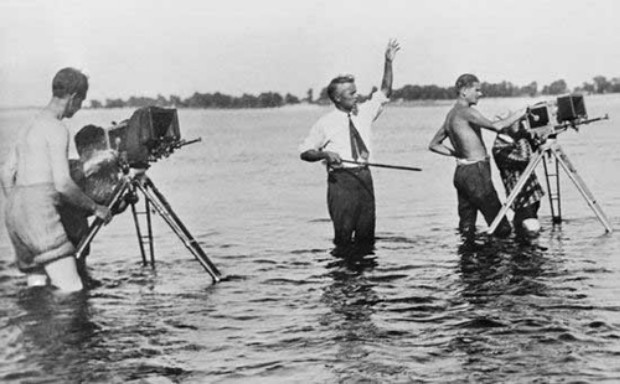
.jpg)
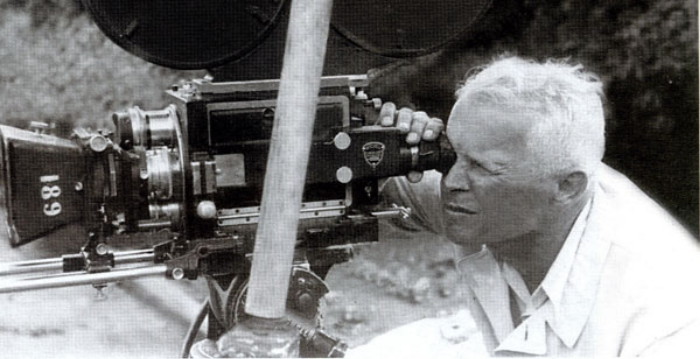
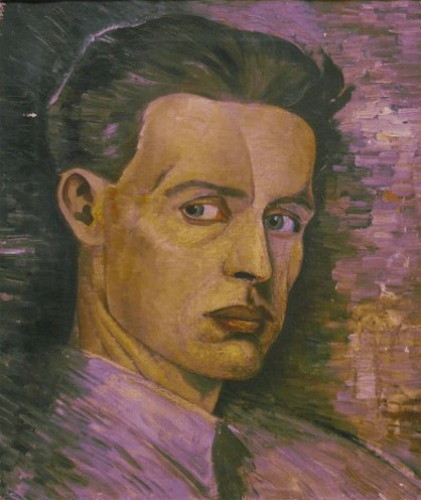
.jpg)
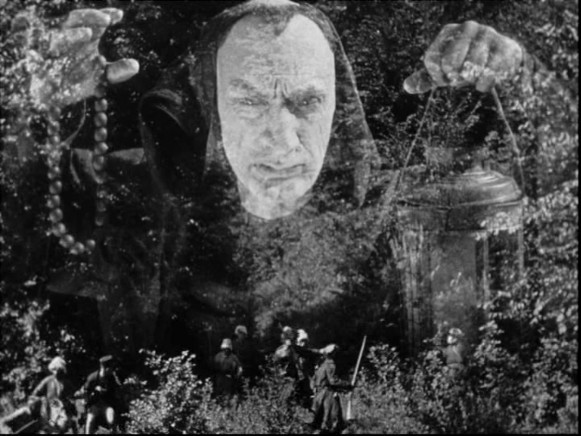
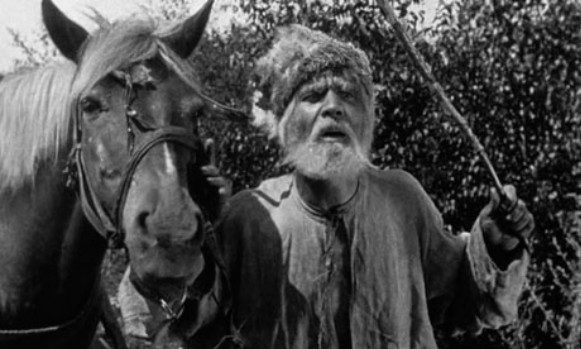
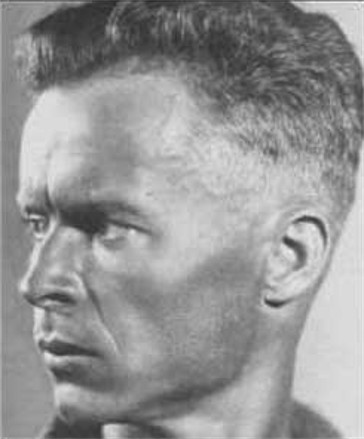
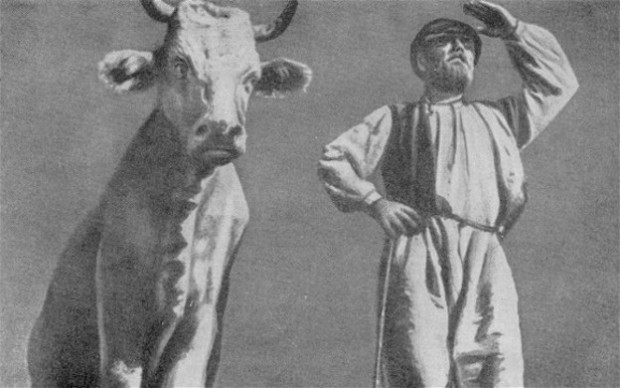
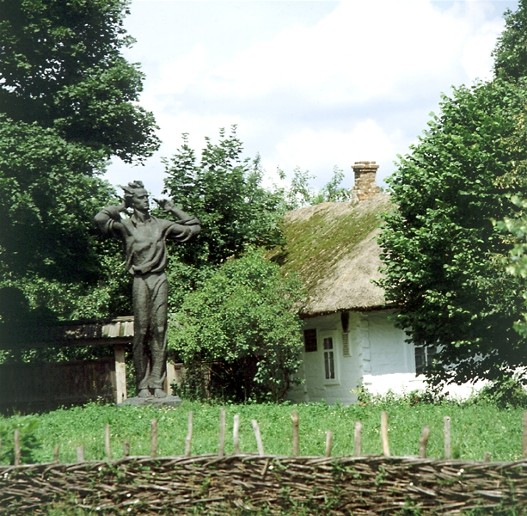
.jpg)
.jpg)